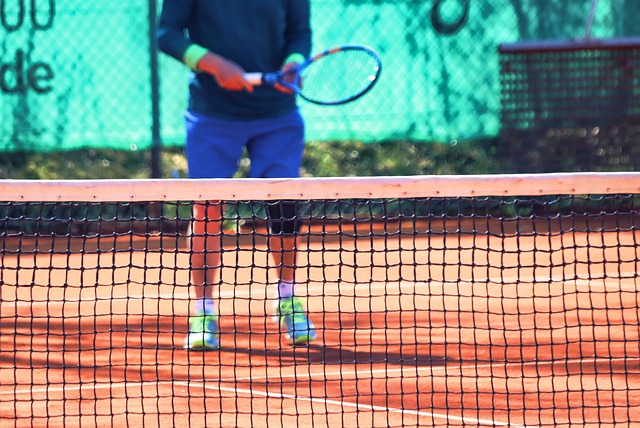Contempt of court in Marion County disputes falls into civil and criminal categories, with distinct implications including fines, imprisonment or both. To navigate these processes effectively, individuals must: 1) understand the specific type of contempt (civil vs. criminal), 2) gather evidence of order violations, 3) consult a specialized attorney, 4) follow proper legal procedures for filing a contempt motion and supporting documents, and 5) for appeals, submit written arguments, legal briefs, case law, and trial documents within strict timeframes. Avoiding charges requires strategic communication, clear documentation, understanding court rules and deadlines, and seeking guidance from attorneys specialized in Marion County disputes.
“Contempt of court is a serious matter, particularly in Marion County disputes, where it can significantly impact legal proceedings. This comprehensive guide aims to demystify the process by offering clear insights into understanding and navigating contempt charges. We explore various types of contempt specific to Marion County disputes, detailing the steps to initiate legal processes and file requirements. Additionally, we delve into rights and procedures for appealing contempt cases, while providing practical strategies to avoid or defend against such charges.”
- Understanding Contempt of Court: Definition and Types in Marion County Disputes
- Initiating Legal Processes for Contempt: Steps and Filing Requirements
- Navigating Appeals in Contempt Cases: Rights and Procedures
- Strategies to Avoid and Defend Against Contempt Charges in Marion County
Understanding Contempt of Court: Definition and Types in Marion County Disputes

Contempt of court is a serious legal issue that arises in Marion County disputes, among others, when an individual or entity fails to comply with a court order. It’s a broad term encompassing various behaviors, typically categorized as civil or criminal contempt. In civil contempt, a party may willfully refuse to do something required by a court order, such as paying alimony or child support. Criminal contempt, on the other hand, involves actions intended to interfere with judicial proceedings, like disrupting a trial or failing to appear in court when summoned.
Understanding these types of contempt is crucial for anyone involved in Marion County disputes. The consequences can be severe, potentially leading to fines, imprisonment, or both. Different types of orders carry different standards for what constitutes contempt. For instance, missing a deadline for filing documents might be considered civil contempt, while arguing with a judge or refusing to answer questions under oath could be criminal contempt. Recognizing the nuances and potential outcomes is essential to navigating these legal processes and appeals effectively.
Initiating Legal Processes for Contempt: Steps and Filing Requirements

Initiating legal processes for contempt in Marion County disputes involves several crucial steps and strict filing requirements. The first step is to gather evidence demonstrating a clear violation of a court order, such as unpaid fines, missed meetings, or failure to comply with specific terms. Once this evidence is compiled, individuals should consult with an attorney specializing in family law or civil litigation to ensure all legal grounds for contempt are met.
Next, the aggrieved party must file a motion for contempt with the appropriate court in Marion County. This document should clearly outline the alleged violation and any relevant court orders. Along with the motion, supporting documents including the original court order, evidence of non-compliance, and any communication records should be submitted. Strict adherence to these procedures is essential to establish a strong case for contempt and ensure a fair hearing.
Navigating Appeals in Contempt Cases: Rights and Procedures

Navigating appeals in contempt cases can be a complex process, especially in high-stakes situations like those involving Marion County disputes. The first step is to understand that both civil and criminal contempt proceedings have specific appeal rights. In civil cases, parties typically have the right to appeal if they believe the court’s decision was based on an error of law or fact. For criminal contempt, the process may differ slightly, with a focus on ensuring due process rights are observed throughout the appeal.
Procedures vary by jurisdiction, but generally, appeals must be filed within a set time frame after the original ruling. In Marion County disputes, this often involves submitting written arguments and legal briefs to the appellate court, along with relevant case law and documents from the original trial. The court will then review the evidence and decide whether to uphold, modify, or reverse the lower court’s decision. This process demands meticulous attention to detail and a solid understanding of both the law and the specific circumstances of the dispute.
Strategies to Avoid and Defend Against Contempt Charges in Marion County

In Marion County, avoiding and defending against contempt charges requires a strategic approach. One key strategy is effective communication. Clear, concise, and respectful exchanges during disputes can prevent misunderstandings that often lead to contempt accusations. Documenting conversations and agreements can serve as evidence of good-faith efforts to resolve issues without escalating them into legal contretemps.
Additionally, understanding the specific rules and procedures in Marion County courts is crucial. Familiarizing yourself with court orders, deadlines, and expected behaviors can help ensure compliance and reduce the risk of inadvertent contempt. Legal counsel specializing in Marion County disputes can provide tailored guidance, ensuring you’re well-prepared to navigate any potential contempt charges.
